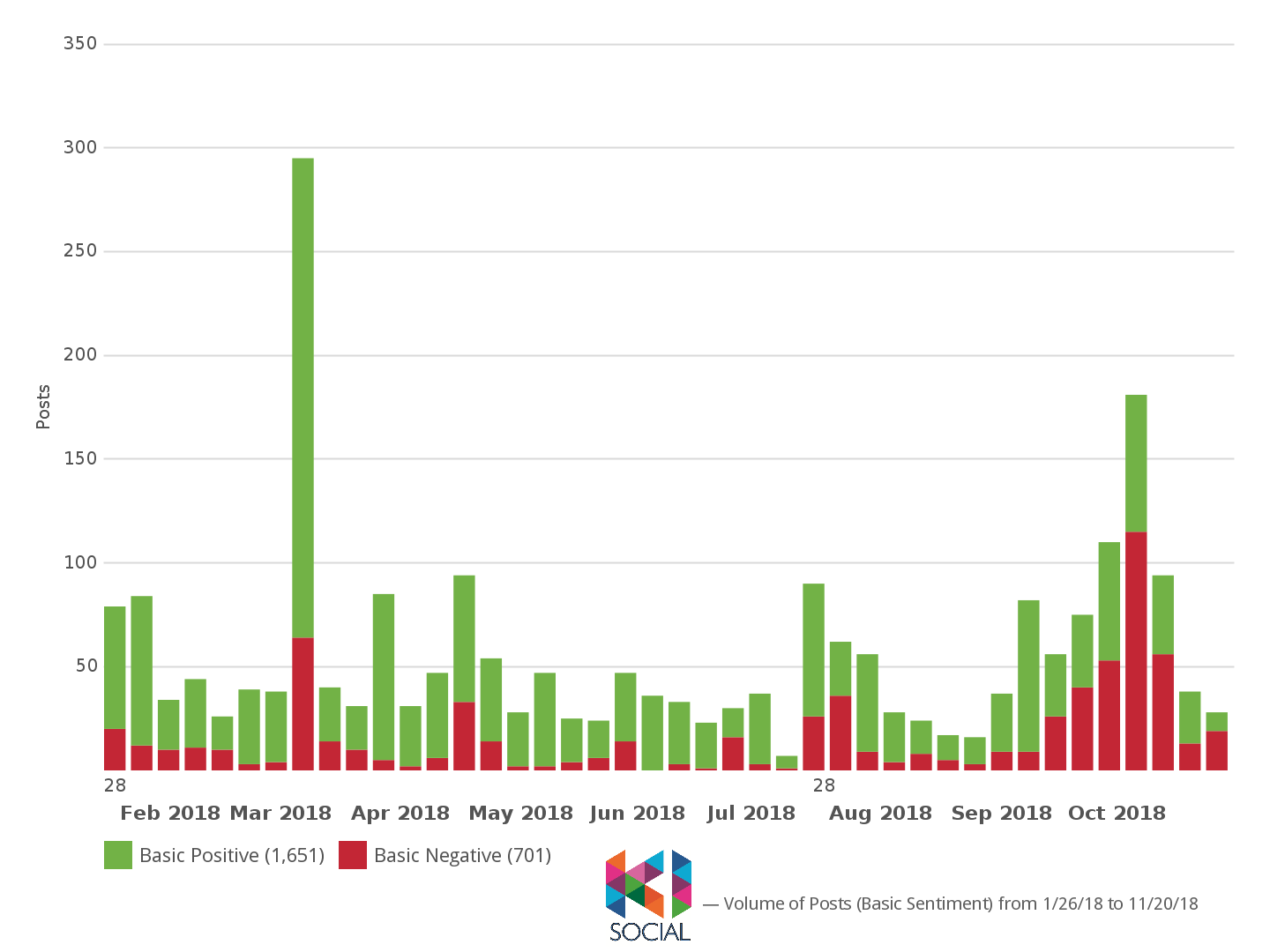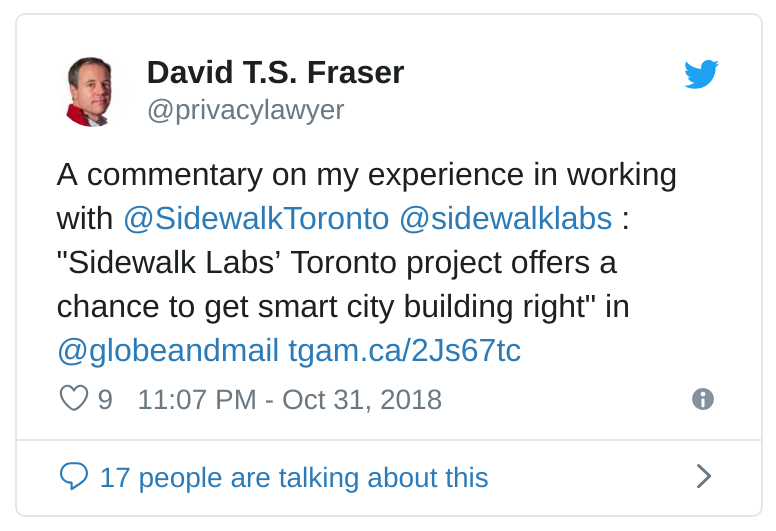The initial excitement over Alphabet’s SmartCity may be dwindling out of the perception that the tech giant will use the new development in the Harbourfront to collect personal data. The special attention given by interest groups to a project that actually has engaged the public and shown good faith may be giving companies the wrong lesson: Don’t engage the public and no one will care.
For several years, Turn Style, now Yelp Wifi, has captured, linked, and shared consumer confidential data with no public engagement and no protest from advocates.
By protesting against companies who are engaging the public – interest groups may be doing Privacy a dis-service
The project, run by Sidewalk Labs is set to be an ambitious feat which incorporates innovation with sustainability to build a city that is ‘smart’—technology that responds to users to create a highly efficient and responsive landscape. On the one hand, the public is excited for the opportunity to live in a highly efficient neighborhood whose core is sustainability and innovation, and on the other, the public is alarmed by advocates who claim that the project’s data collection and sharing is alarming. The graph below illustrates how feelings of excitement are progressively being overtaken by feelings of fear.

The real question we should be asking is whether the data being collected, is much different from the surveillance techniques we interact with daily. Traffic cameras- the low-tech version to Apples’s sensors- already track our movements. Our Presto cards, now increasingly necessary to use public transportation, store our travel data and can reveal where we live, work and who we travel with. Yelp Wifi is a known data predator, which indiscriminately and without consent tracks Torontonians’ entry and exit into 600+ local businesses. We sign onto unsecured servers to gain access to Wi-Fi when we are at a café or shopping mall, and most of us already give access to more information than we realize via the cellphones we carry and use to share personal information, at all times. Yelp’s retention policy is effectively indefinite. Opting out of their services is definitely not accessible even for the tech-savvy.
Here is an excerpt of Yelp wifi data retention:
We (Yelp) retain all Personally Identifiable Information and Non-Personally Identifiable Information until the date you first access the Services or the time at which you instruct us in accordance with the terms hereof to remove your Personally Identifiable Information or Non-Personally Identifiable Information.
I have been following Yelp’s Wifi traction on privacy from when it was a startup on King West called Turnstyle. Their CEO was quoted “I want to desensitize people’s need for privacy”. Their traction on privacy has been disappointing. Reviewing their policies over the years, I found that:
Yelp Wifi’s retention policy is confusing and inaccessible, it violates the reasonable expectation of privacy
In my opinion, and despite all the noise, Sidewalk Labs’ proposal is reasonable. Their Digital Governance Proposal has principles that demonstrate good faith. Meanwhile, advocates are pushing for anonymization, a technique that allows the removal of personal identity from any sensor data.

In this discussion, some argue that the issue is not that Sidewalk Labs will collect data, it is that a corporation is cementing itself—literally—in the place of local government. What access will it have and who will it share our information with?
Like any good government, in order for citizens to have a voice and prevent any giant from taking over—political or corporate—there needs to be checks and balances in place to ensure compliance. In reviewing their proposal, I found that:
The sidewalk proposal is reasonable, however it is missing an important tenant of data protection, that is Audit.
Much like any public corporation that exposes its financial documents to a third party to perform its financial audit, Sidewalk Labs’ proposal is missing the potential of a technical audit by a third-party assessor.
I also find the counter points made by advocates to be lacking. The argument that anonymization offers protections in big data is misplaced:
Anonymization may be moot because data will be released to companies that have other sources to blend
The current negotiations happening are important but unless we understand how they will be enforced and regulated over time, they remain policy when in fact action is needed. This is new territory from a legal, political, and business standpoint and the truth is, Canadians do not have robust protections in place to safeguard them from privacy exploitation. As the law unfortunately drags behind, we must be proactive in how we build our security governance. Privacy audit companies have long been in the business of protecting our data—they ensure information is being stored and shared responsibly and, the way it’s intended.

As we continue to debate the Harbourfront project we must resist falling back onto tropes of progress versus preservation of the norm. Initially, we must realize that our norms most likely share more of our data than we would like. Then, we must understand that change is inevitable, but we have a chance to be part of that change and direct its course. Privacy Auditing allows us the opportunity to consistently ensure that our data is being used in the ways we intend for it to be used.
Now is not the time to step away from negotiations, particularly from a company that is welcoming feedback. How the project is developed and instituted will set a precedence and influence, not only for the Harbourfront area, but what we can expect from corporate governance and the future of privacy laws. It is in our utmost interest to take full interest and engage as extensively as we can to ensure an outcome that keeps its promise of innovation and sustainability.
As a private citizen, I welcome businesses that are open to listening and are engaging the public to expressing their opinion. The effort by Sidewalk Toronto and their partners is a work in progress that will need more attention and third-party attestation.
Stay tuned for our upcoming pieces that continue to inform on Privacy by Design in the Big Data environment.
